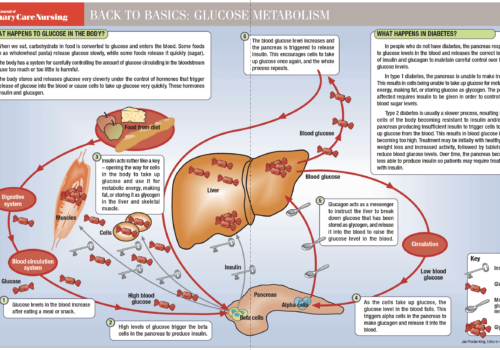Most smokers want to stop smoking and intend to stop at some point, according to research. Nearly half of all smokers expect not to be smoking in a year’s time, but only two to three in every hundred actually stop smoking permanently each year. It is widely recognised that healthcare professionals have an important role to play in helping patients to stop smoking, but what is the best way to achieve this?
C-reactive Protein (CRP): an Emerging Marker of Cardiovascular Risk
The major risk factors for cardiovascular disease (CVD) include high blood pressure, dyslipidaemia,diabetes, and smoking, all of which can be managed with lifestyle and therapeutic interventions. C-reactive protein is emerging as a useful new risk marker.
How to Use Brief Motivational Interviewing
Helping people to change risky behaviour is notoriously difficult, but brief motivational interviewing has been found to be helpful. In this article, we look at the research supporting this patient-directed counselling style and how to use it in clinical practice.
Back to Basics: Glucose metabolism
The year of care for diabetes: what can it achieve?
The Year of Care for diabetes project has its roots in the recent movement to put patient empowerment at the top of the health agenda.It reflects recent government publications,including Choosing Health: Making healthy choices easier and Our health, Our care, Our say. In this article we look at the development of the project, its aims and what it will mean in practice.
Blood glucose monitoring for people on insulin
This article will examine the issues surrounding blood glucose monitoring for people treated with insulin.It will look at the practical skills required for patients to test accurately,the roles of the individual patient and the healthcare professional in successful monitoring,and the equipment required.The aim of the article is to ensure that monitoring justifies the expense and time involved by achieving good glycaemic control.
Tracing the history of insulin
We often take modern medicine for granted,but a review of the history of a disease and its treatment can help us put the whole thing in perspective.In this article,we trace the development of understanding about the nature and cause of diabetes and the use of insulin as a key treatment.
Starting on insulin for type 2 diabetes
Learning to live with insulin: helping patients to do well
Starting on insulin injections represents a major change for most people with diabetes. Many aspects of everyday life will need to be considered more carefully,which can be quite daunting.With adequate support and education from the practice nurse,patients can be encouraged to be proactive and positive towards this new stage in their lives. This article looks at people with type 2 diabetes or those with stable type 1 diabetes,who are likely to be managed in general practice.We discuss everyday concerns about using insulin,why people on insulin are prone to put on weight,how exercise affects blood glucose levels,how to manage illness in those with diabetes and how to adequately prepare for holidays.
Insulin in type 2 diabetes: getting the balancing act right
How much insulin does a patient with type 2 diabetes need for optimal glucose control? It can sometimes be a tricky balancing act to get the dose just right – too much increases the risk of hypoglycaemic episodes and too little risks poor glucose control and the associated long-term complications.In this article we review what the research and guidelines recommend in how to ensure each patient gets the best dose of insulin.
Hitting the spot: injection technique using an insulin pen
This article provides a simple guide to the do’s and don’ts of insulin injection technique, taking you through the steps that patients need to go through to inject their insulin correctly.
Helping patients on insulin to travel safely
People with diabetes need to plan carefully for holidays, especially if they are treated with insulin. Although much of the advice will be the same as for the general population, these patients are more vulnerable and will need to take particular care in looking after themselves to avoid any ill health while away from home.





















